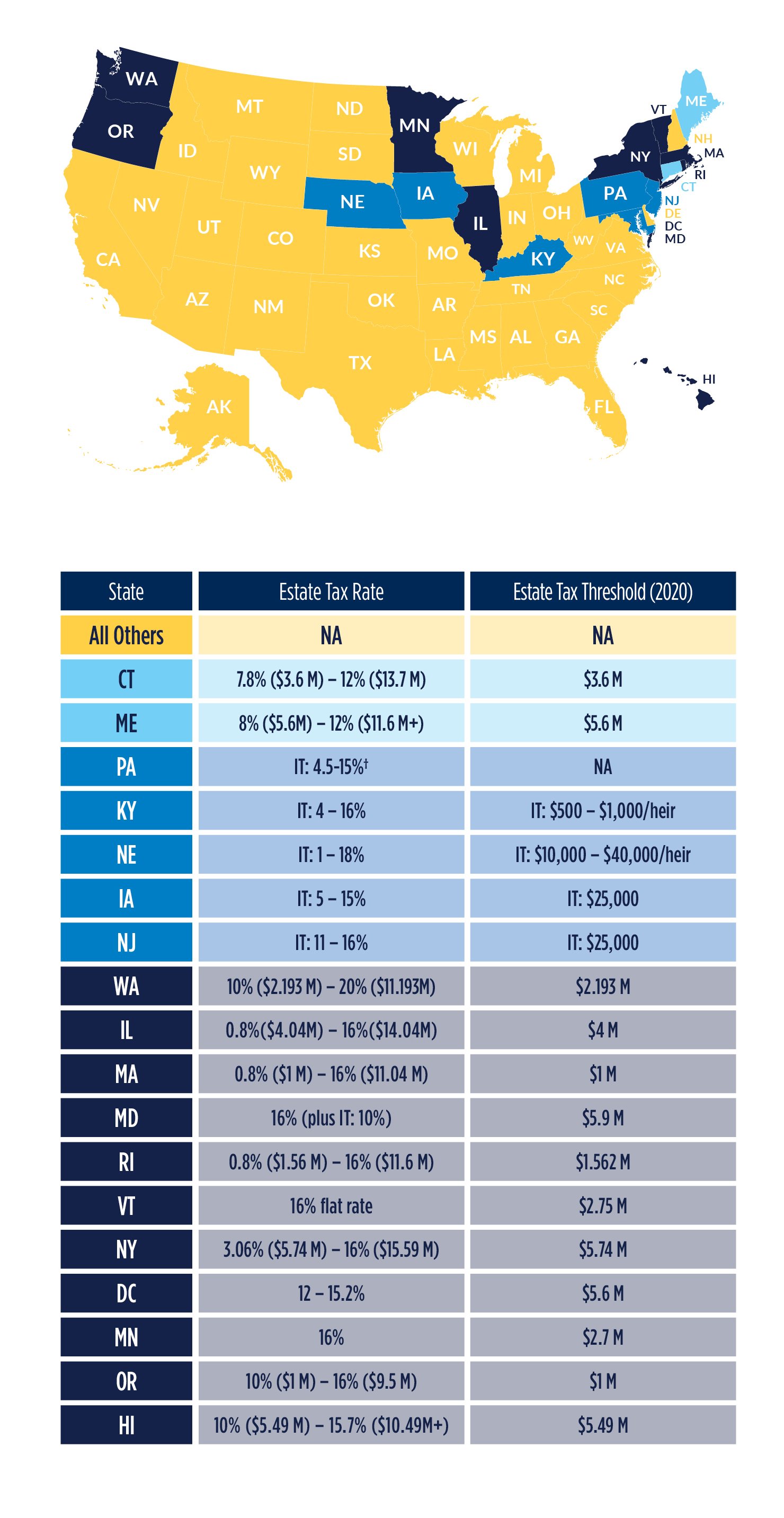Key Takeaways & Strategies for a Brave New World

Never before has the term, “Happy New Year” rung with such a profound sense of hope and relief. Throughout 2020, we navigated the countless challenges and transitions that COVID-19 forced upon us. Even alongside a tumultuous and anxious landscape, we’ve gained precious insights into our daily lives and habits. We’ve come to terms with the fragility of our sense of control, and—perhaps most importantly—where our true priorities lie.
The Power of Places and Faces
For so many of us, our inherent need for human connection was revealed. We all utilize the subtleties of a smile and the warmth of a welcome handshake to build trust and reliance. Even brick and mortar buildings can provide the kind of legitimacy and stability one needs to make and complete difficult decisions. Without such interpersonal interactions, isolation can have a severe impact on our mental health. Most of our documents need multiple witnesses and notarizing. This is just one of the
reasons why we decided to keep our offices open safely. Our aim to provide guidance and expertise on some of the most significant decisions our clients could make in life are our number one priorities.
A Boom for Zoom
When the practice of social distancing removed us from our offices and other public spaces, technology tried quickly to fill the gap. In a matter of days, people of all backgrounds and abilities acclimated to online platforms and ordered deliveries. In many ways, this shift was rewarding as we have seen an increase in independence for seniors and an increased interest in lectures and online learning. Industries have utterly transformed in response to the pandemic, in some cases irrevocably and in others, fantastically and quite successfully. From retail operations moving to curbside shopping and pickup, to hospitals and healthcare providers transitioning to telehealth in order to continue access to preventative care and other services, there is much to learn and reap from these inventive methods. Even so, a backdrop of struggle and collapse accompanied 2020, as childcare bottlenecks forced some parents out of the workforce. The painful limits of remote learning, and the overwhelm hospitals and healthcare workers faced were part of our daily lives. We have yet to see just how far-reaching the effects of COVID-19 will be on our society and our economy.
Preparation is the Antidote to the Unknown
Unfortunately, we can’t talk about a new year without talking about the budget deficit. We anticipate an aggressive regulatory environment for addressing the growing imbalance between tax receipts and expenditures. What has been ongoing for quite some time now has rapidly accelerated in the last year. Ultimately, someone will have to pay the piper. Whether that comes in the form of higher taxes in the short term, a reduction in entitlement spending, or a kicking of the can even further down the road via refinancing, the debt needs to be repaid. Tax increases are highly likely to happen, and this is where we can help you. Though we do not yet know what future policies will look like, the more we explore creative tax savings scenarios and prepare for longevity and higher costs, the closer we will be to the optimal strategy when new policies are enacted. So, do not be scared, but do prepare. Let us help you manage the unknown and make smart decisions as we forge ahead into a brave new world, together.
January 18, 2021
News, Tax Savings, Tax Exemption, Estate taxes
Retirement Landscape: Estate Taxes

The quality of your retirement can be impacted by state-level taxes, such as income, sales and property taxes. Taxes tend to lead to inflation, meaning the cost of living trends higher in high tax states. Your spending power will thus be greater in states with low state taxes. Retiring in a state with high taxes, such as California where income taxes alone range up to 13%, means paying a large chunk of your retirement income to the state, diminishing your spending power. Consider how you plan to spend during retirement; do you prefer to make your home a vacation destination for others, or do you want to be the one travelling? If the latter, putting down roots in a small home in a state with low taxes may give you the financial freedom you want to see the country or the world.
Still another factor to consider is the taxes payable upon death, commonly called estate taxes or inheritance taxes. An estate tax is based on the value of the decedent’s gross estate (all the real and personal property the decedent owned); whereas an inheritance tax is based on the relationship between the decedent and the beneficiary. The chart on the right identifies the states with a state-level death tax. Estate taxes are highest in Washington, which currently has a 20% estate tax on estates over $11.2 million. Other tough tax jurisdictions include Vermont, New York, Massachusetts, Rhode Island, Maryland, Oregon and Hawaii. Retirees who have family in these states may benefit from maintaining a primary residence in a low tax state, with a second home in the higher tax state.
Six states have an inheritance tax: New Jersey, Pennsylvania, Maryland, Kentucky, Nebraska and Iowa. Although bequests to spouses are exempt from inheritance tax, bequests to children, siblings, nieces and nephews, cousins, or close friends may bear a high tax. Crossing the border to a state without an inheritance tax can save your loved ones hundreds of thousands of dollars. For example, a niece who inherits from an aunt who passes away in New Jersey with a $5 million estate will pay approximately $750,000 to the State of New Jersey; however, if the same aunt died a New York resident, there would be no inheritance tax liability.
Another way to take advantage of tax-friendly jurisdictions is by establishing a trust in that state. In New Hampshire, trusts are exempt from state-level income, sales and estate taxes. Consider again a woman living in New York or New Jersey with a $7 million estate. If she were to transfer her investments to a New Hampshire trust, her niece could inherit from the trust without having to pay estate or inheritance tax. Often people find that the tax savings they enjoy by establishing a New Hampshire trust more than pay for the costs and fees associated with setting up and maintaining the trust. Each individual’s circumstances are different. Working with your investment advisor and accountant, our attorneys can create a custom estate plan that will maximize your spending power in retirement and help you navigate your own retirement map.

January 18, 2021
News, Tax Savings, Tax Exemption
ACT BEFORE YEAR-END TO PRESERVE YOUR CURRENT ESTATE TAX EXEMPTION

Strategies to Reduce Gift/Estate Tax Uncertainty
Many of our clients have had their eyes on the election and may be rightly thinking about the need to update their gift and estate planning. There is already an open discussion about a rollback of the 2018 Trump tax cuts in the Biden camp. If Biden’s win is confirmed, and if those sympathetic to Biden’s policy proposals gain control of both houses of Congress, the current generous gift tax of exemption $11.58M, or $23.16M for a married couple, could easily be reduced by 50% or more. Currently, the balance of power will be decided by a run-off election for Georgia’s two senate seats, which won’t be decided until January 5th, potentially too late to make a decisive move.
To counter this uncertainty, consider a strategy that allows you to “freeze” the current generous gift estate exemption: the gift of a promissory note. An individual can promise to make gifts to donees in the future through such a gift. This promise to make the transfer in the future allows the donor/promisor to take advantage of the current $11.58M estate tax exemption, while still having possession and control of the funds or property.
Normally, a promise must be supported by some consideration and show mutual assent by the parties to be enforceable. Nevertheless, for gift tax purposes, a transfer may constitute a gift even if the property is transferred for less than adequate and full consideration in money or money’s worth. 26 U.S. Code §2512. Additionally, a gratuitous transfer of a legally binding promissory note is considered a completed gift even though the donor is solely making a promise to gift property in the future. Rev. Rul. 84-25. These gifts should be timely reported on a Form 709: “United States Gift (and Generation-Skipping Transfer) Tax Return.”
Whether this gift strategy will ultimately reduce the estate tax burden will depend in part on whether the taxpayer dies within 3 years of making the gift. If so, the IRS can successfully “add back” the tax burden to the decedent’s gross estate. Gifts made shortly prior to a person’s death are normally considered “gifts in contemplation of death”; in other words, a gift of property made by a person expecting to die soon. If the gift is considered to be made in contemplation of death, the gift will be included in the value of the decedent’s estate for federal tax purposes, which could result in taxation if the estate tax threshold is lowered significantly.
A potential solution to this issue may be a self-cancelling note. This instrument works similarly to a typical installment note, in that payments are made to a person or a trust periodically over a specified period of years. But, unlike a classic installment note, a self-cancelling note includes one or more provisions for automatic cancellation of the unpaid balance at the death of the seller/donor. Therefore, if the donor dies before the specified period, the property is transferred, and the value is removed from the decedent’s estate. If the donor lives beyond the period over which payments may be made, the “cancel at death” provision(s) are not triggered.
Some states have similar provisions to the federal 3-year-period explained above. One example is the State of New York, where there is no gift tax. Here, New York Tax Law § 954 (a) (3) includes in a New York resident’s taxable estate the amount of any gift made during the three year period before the decedent’s death, but not including any gift made: (a) by a non-resident of New York state; or (b) before April 1st, 2014; or (c) between January 1st, 2019 and January 15th, 2019; or (d) that is real or tangible personal property having an actual situs outside NY state at the time the gift was made. This provision is set to expire on January 1st, 2026, in line with current Federal law.
Another strategy is to make the promissory note payable to an irrevocable trust for the benefit of the donees. In this case, the donor could promise to pay or give property to a trust for the donee’s benefit. The note would then be delivered to and enforceable by the trustee of the trust. Even though the beneficiaries of the trust are the ultimate recipients, they should not be considered to have received an indirect gift to the trust for gift tax purposes. If the note is payable to a trust created by the donor, the trust could be structured as a grantor trust for income tax purposes. 26 CFR §1.671-2 (e) (2). Consequently, neither the donor nor the trust should be taxed on the interest on the note. Rev. Rul. 85-13.
Carefully implemented, this gift tax strategy can allow you to benefit from the current gift tax exemption, without losing control of assets, and may allow you to reduce your estate tax burden significantly. Contact us to see if this simple but effective strategy could be right for you.
November 16, 2020
News, covid19, lifetime giving, asset relocation, charitable contributions, roth conversions, harvesting losses
When the Skies are Grey, Look for Silver Linings

The Coronavirus has formed a dark cloud over the economy but may offer a silver lining for savvy clients. The downturn has created an opportunity for you to use proven strategies to reduce your tax burden and preserve your wealth.
Lifetime Gifting
During a downturn in the market, you can reduce or eliminate estate taxes by gifting to loved ones (or trusts) assets which are likely to appreciate in value. For example, now is an excellent time for anyone who owns a business to do succession planning. Transferring fractional shares of the business to the next generation is a timely strategy. You can transfer minority shares at a discount thereby using less of your lifetime gift exclusion than you would if you transferred the same assets at their full value. This is an easy way to reduce the size of your taxable estate while still maintaining control of key assets.
Relocate Assets
Asset location is often more important than asset allocation. Moving assets to a trust in a tax-friendly state, such as New Hampshire, might allow you to avoid state-level taxes, which can be severe. In New York, for example, estate taxes can be as high as 16%, and income taxes can be as high as 8.79% (throughout the state) or 12.7% (in NYC). The right asset location can significantly reduce your tax burdens and help you to build and secure your families’ wealth.
Charitable Contributions
You can assist your favorite charitable organizations by creating a charitable lead trust or a charitable remainder trust. If you have investments that are generating interest and dividends that you do not need, a charitable lead trust may be right for you. With a charitable lead trust, the charity receives a payment from the trust during the term of the trust, calculated as a percentage of assets. At the end of the term, the assets in the trust transfer to non-charitable beneficiaries, such as family members. The benefits are threefold – your favorite charity receives a stream of donations, you reduce your income tax, gift tax and estate tax liability, and the underlying assets are ultimately preserved for your family members.
On the other hand, if you wish to receive a steady stream of income, a charitable remainder trust may be the better option. With a charitable remainder trust, you receive a fixed payment during the term of the trust, and at the end of the term the assets transfer to a charity. This is a preferable option where you have assets that have highly appreciated, but are not generating significant dividends, such as concentrated appreciated stock holdings. If you were to sell those stocks, you would pay significant capital gains tax. Assets sold while in a charitable remainder trust, however, are not subject to capital gains taxation, and therefore you can “swap” appreciated stock for a more diversified portfolio, creating an income stream for yourself while minimizing capital gains tax. Ultimately the assets transfer to a charity, which helps to reduce your estate tax liability as well.
Harvest Losses and Rebalance Portfolio
You can take advantage of the market downturn by harvesting losses in positions that have declined in non-retirement accounts. Capital losses can offset other income, up to $3,000 a year. Capital losses can also be used to offset capital gains to an unlimited extent. They can be carried forward if not used in a given calendar year. When rebalancing and diversifying a portfolio, having these losses in store to offset future gains can be a wise move. Talk to your investment advisor about prudently implementing this strategy.
Roth Conversions
In a traditional IRA, your contributions are taxed on the way in, but not the way out. In a Roth IRA, it is the opposite. You pay taxes on your contributions, but not on what you withdraw. For many people, due to the current circumstances, it might be better to pay the taxes now and avoid them later. This move might make sense for you for a number of reasons. The first is that markets are temporarily depressed at the moment. That means that when you convert your assets from a traditional IRA to a Roth IRA, you will pay taxes on that depressed value, meaning less taxes overall. Additionally, those assets are expected to bounce back, so after you convert to a Roth IRA, you will avoid paying taxes on the value your assets gain. Another reason to convert is if your income is lower this year due to the crisis. You will have to pay income taxes when converting, but if you convert during a year when your other income is lower, your overall tax burden will be less. It may seem counterintuitive to intentionally pay more taxes this year of all years, but in the long run, converting to a Roth IRA might be the best option for you and your family if you have at least ten years to go before retirement.
We Are Here To Help You
If you and your loved ones are looking for opportunities to minimize your tax burden and preserve your wealth, consider reaching out to Donohue, O’Connell & Riley. We are here to help you get through these challenging times together.
June 25, 2020
News, covid19, remotenotorization
Remote Notarization: Keeping Your Family’s Future Secure During Covid-19

States around the country have instituted emergency measures to permit the virtual notarization and witnessing of documents in response to the COVID-19 pandemic, allowing people to set up official documents like wills and trusts while maintaining social distancing.
In these uncertain times, these new regulations let folks secure their futures over video calls from the safety of their own homes. While states differ on the details of these policies, Donohue, O’Connell & Riley clients throughout the northeast will be able to take advantage of these rule changes through the duration of their home states’ state of emergency declarations.
New Hampshire
New Hampshire Governor Chris Sununu signed Executive Order 2020-04 #11 in March allowing for remote notarization via video calls or related audio/visual media for the duration of New Hampshire’s state of emergency. The notarization process can be done relatively quickly over applications such as Zoom, just keeping in mind that the signer must be properly identified and that the call must be simultaneous and recorded.
New Jersey
Similar to New Hampshire, New Jersey has also authorized remote notarization through their state of emergency. The notarizations must be made over a simultaneous video call, and the call must be kept on record for at least 10 years. For more details see Assembly 3903.
New York
New York Governor Andrew Cuomo signed Executive Order No. 202.7 allowing for remote notarization of documents to help accommodate for proper social distancing. The order sets out similar requirements to those in New Hampshire and New Jersey such as signer identification, and the video call must be simultaneous and recorded. Although the was initially set to expire on May 31, it has been extended to June 27, 2020.
Now is a time when many feel pressured to get their estate plans in order but also understandably feel wary about entering law offices, courthouses and other public places. Thanks to these new regulations, Donohue, O’Connell & Riley clients can secure their families’ futures while staying safe at home with attorneys licensed in NH, NY, NJ, ME, MA, and CT. Do not hesitate to reach out to our office at 844-50-TRUST to learn more about these remote notarization procedures prior to drafting and execution of documents.
June 4, 2020

